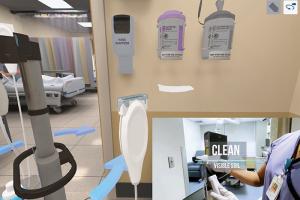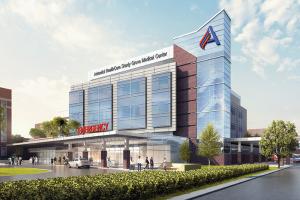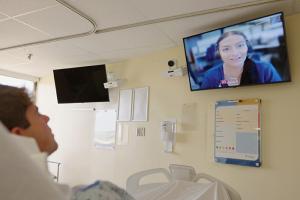Tech talk: Patient sensors, hospitable humanoids and video consultations
Sensors predict falls and heart attacks
Researchers at the University of Missouri, Columbia, are testing the use of sensors to help detect risk of falls and heart attacks in senior patients. The university’s Center for Eldercare and Rehabilitation Technology sponsored the program in which radar sensors concealed in a wooden box sat in the living room of 10 senior home residents. The research team also placed bed sensors beneath their mattresses. The bed sensors use hydraulic transducers to monitor blood flowing through patients’ bodies as a result of their heart beating.
“In-home sensors have the ability to capture early signs of health changes before older adults recognize problems themselves,” says Marjorie Skubic, professor of electrical and computer engineering and the center’s director. “The radar enhances our ability to monitor walking speed and determine if a senior has a fall risk. The bed sensors provide data on heart rate, respiration rate and overall cardiac activity when a senior is sleeping. Both sensors are noninvasive and don’t require seniors to wear monitoring devices.”
Skubic and her team are working to investigate other sensors that can further improve very early detection of health changes so that health problems can be addressed while they are still small and manageable.
Robots to deliver humanlike hospitality
Two Belgian hospitals are expecting delivery of their custom-designed Zora Bots next week. The humanoid robot model, dubbed Pepper, is bigger and more mobile than the maker’s Nao robots.
The robots will be staffed within the hospitals’ hospitality departments to help welcome and take care of visitors and patients. The humanoid is designed for searching for and spreading information, which its maker, QBMT, says is well-suited for industries such as retail, hospitals and banks.
Videoconferencing improves care for dementia patients
Biweekly consultations between nursing home staff and clinical experts at Beth Israel Deaconess Medical Center (BIDMC) resulted in better treatment for dementia patients, according to a new study.
Clinician researchers at BIDMC implemented Project ECHO-AGE four years ago in an effort to extend geriatric specialty care for patients with dementia from the hospital and into community-based nursing homes. After the consultations were put into effect, researchers found that patients were 75 percent less likely to require physical restraints during treatment and 17 percent less likely to be prescribed antipsychotic medications.
“There is a two-pronged issue facing nursing homes in the United States: a shortage of geriatricians, behavioral neurologists and geriatric psychiatrists, and a lack of proximity of community nursing homes to larger medical facilities with specialists,” explains one of the study’s authors, Stephen Gordon, M.D. Gordon, is a geriatrician in the division of gerontology at BIDMC and at Hebrew SeniorLife.
“Videoconference technology can bring academic medical center specialists and nursing home staff together in a collaborative effort to care for patients with dementia,” he continues. “It’s clear that by working together, clinicians and nursing home staff can notably improve patients’ health and quality of life.”




